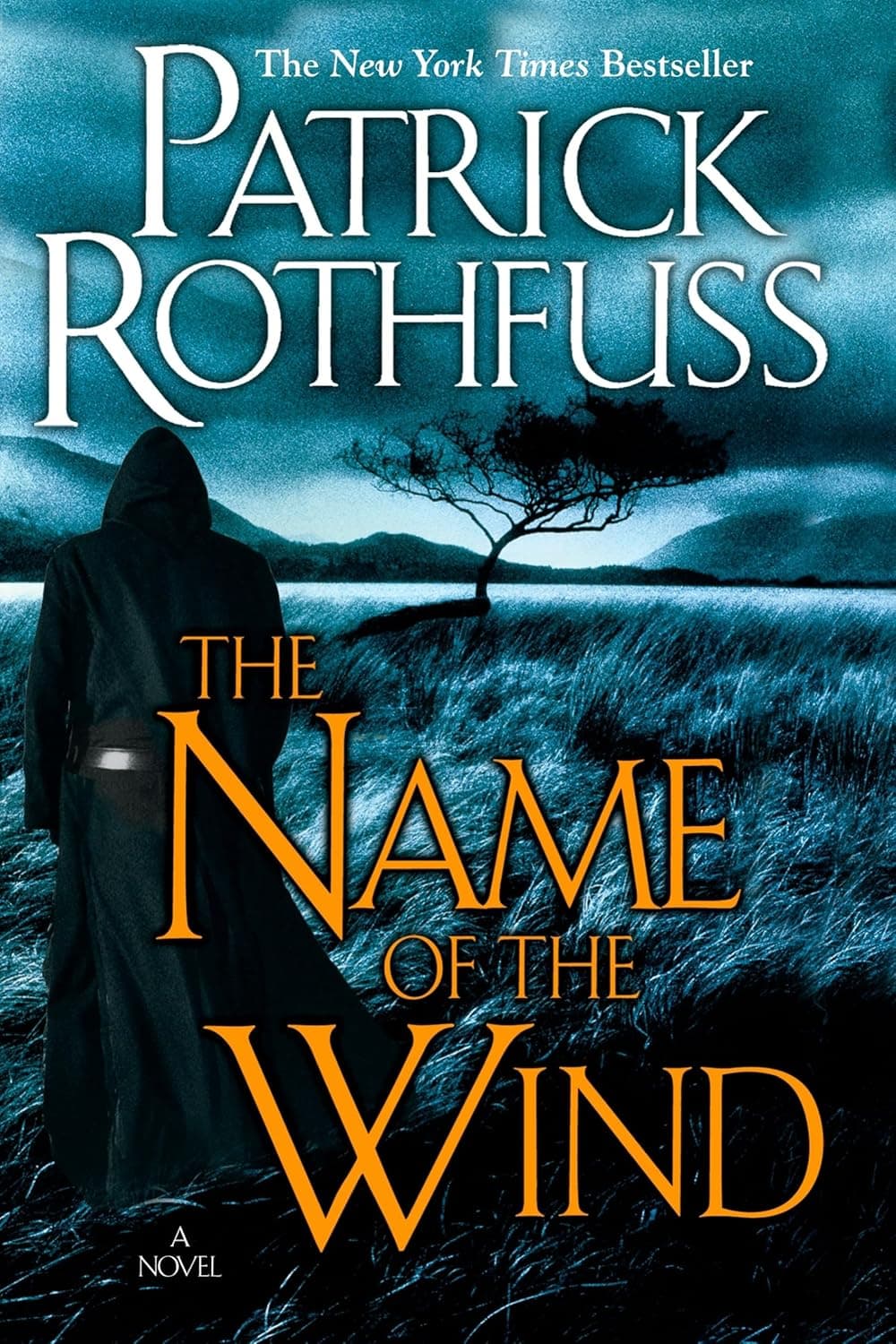
Review summary
This spoiler free review of The Name of the Wind by Patrick Rothfuss walks through why this fantasy adventure that the kingkiller chronicle day one still hooks readers. An orphaned prodigy recounts how quiet beginnings, relentless study, and dangerous names forged him into a legend whispered across the Four Corners of Civilization.
Full review
The Name of the Wind introduces Kvothe, an orphaned prodigy who looks back on the choices and accidents that turned him into a name people whisper about. He tells his story from a quiet inn, tracing a path from childhood tragedy to relentless study and dangerous magic.
The prose is the book's most talked about feature. Sentences move with an easy rhythm, and small details like stew on the fire, calloused fingers, or the weight of a lute help the world feel solid. When Kvothe plays music, the scenes read like live performances, which makes this a natural fit for readers who enjoy sensory, character driven fantasy. You can find similar titles curated in our epic fantasy bookshelf.
Magic in Temerant has rules. Sympathy demands discipline and study, while naming leans on intuition that cannot be completely taught. Both shape university politics, street scams, and regional legends. The structure keeps even spectacular scenes grounded because every bit of power has a cost.
Kvothe as narrator is sharp, funny, and stubborn. He is aware of his gifts and not always modest about them, which creates friction with teachers, rivals, and potential allies. Supporting characters, from the Chronicler to Denna, feel distinct even when they appear briefly, and the frame story in the inn gives everything a slightly melancholy echo.
The pacing favors slow burn character development, academic intrigue, and foreshadowing over constant action. Readers who like to sit with atmosphere, relationships, and small mysteries are often the ones who fall hardest for this book.
If you decide to keep a copy, our trusted Amazon link lets you pick up The Name of the Wind easily while you explore more impressions and lore deep dives on sites like Tor.com.
Highlights from this The Name of the Wind Review
Lyrical storytelling that gives weight to scenes at the inn, the University, and on the road.
A thoughtful magic system where sympathy and naming both shape politics, education, and survival.
Character driven stakes that balance wit, vulnerability, and the cost of reputation.
Ideal Readers for The Name of the Wind
Fantasy fans who enjoy slow burn coming of age stories packed with music, academic rivalries, and layered worldbuilding.
Readers who like immersive settings similar to those in The Night Circus but prefer a more grounded magic system.
Helpful Extras for Kingkiller Chronicle Fans
Listen to acoustic or soundtrack style playlists while reading performance scenes to echo the book's musical heart.
Track each sympathy lesson and naming clue in a notebook so you can revisit them when the frame narrative returns to the Waystone Inn.
Key ideas
- Stories and rumors have real power, shaping reputation, safety, and opportunity in Temerant.
- Knowledge usually costs something, whether the price is money, time, pain, or lost chances elsewhere.
- Identity gets complicated when the legends others tell about you drift away from what really happened.
If you liked this, read next
FAQ
- What is The Name of the Wind about?
- The Name of the Wind follows Kvothe as he recounts how an unusual childhood, years on the road, and an education in magic turned him into a legend. It is the first book in The Kingkiller Chronicle and sets up both his public reputation and the quieter truths behind it.
- Who will enjoy The Name of the Wind?
- Readers drawn to character driven fantasy with strong narrative voice, detailed worldbuilding, and a focus on learning and craft will likely enjoy this novel. It suits older teens and adults comfortable with a slower pace.
- What themes stand out in The Name of the Wind?
- Major themes include the power of storytelling, the cost of knowledge, and the tension between who you are and who people say you are. The book also looks at poverty, privilege, and how institutions shape who gets access to education.
- Is there anything to know before starting The Name of the Wind?
- The story is the first of a planned trilogy and ends with many threads still open. Sampling the first few chapters is a good way to see if you like the voice, structure, and pace.
Reader-focused angles
This review intentionally answers longer questions readers often ask, such as the name of the wind story summary and key themes in kvothe’s tale, the name of the wind age recommendation, pacing and who this fantasy is best for, books like the name of the wind for fans of character driven epic fantasy, and the name of the wind magic system, structure and ideas to analyze, so the guidance fits naturally into the analysis instead of living in a keyword list.
Each section of the review is written to speak directly to those searches, making it easier for book clubs, educators, and new readers to find the specific perspectives they need.
Reading guide
- Note every time Kvothe glosses over, exaggerates, or dodges a detail while telling his story and discuss why he might do that.
- Sketch a simple map of the University and nearby haunts to keep track of how different disciplines intersect.
- Pair your reading with a playlist of strings and quiet instrumentals to echo the tone of Kvothe's performances.
As an Amazon Associate, I earn from qualifying purchases.